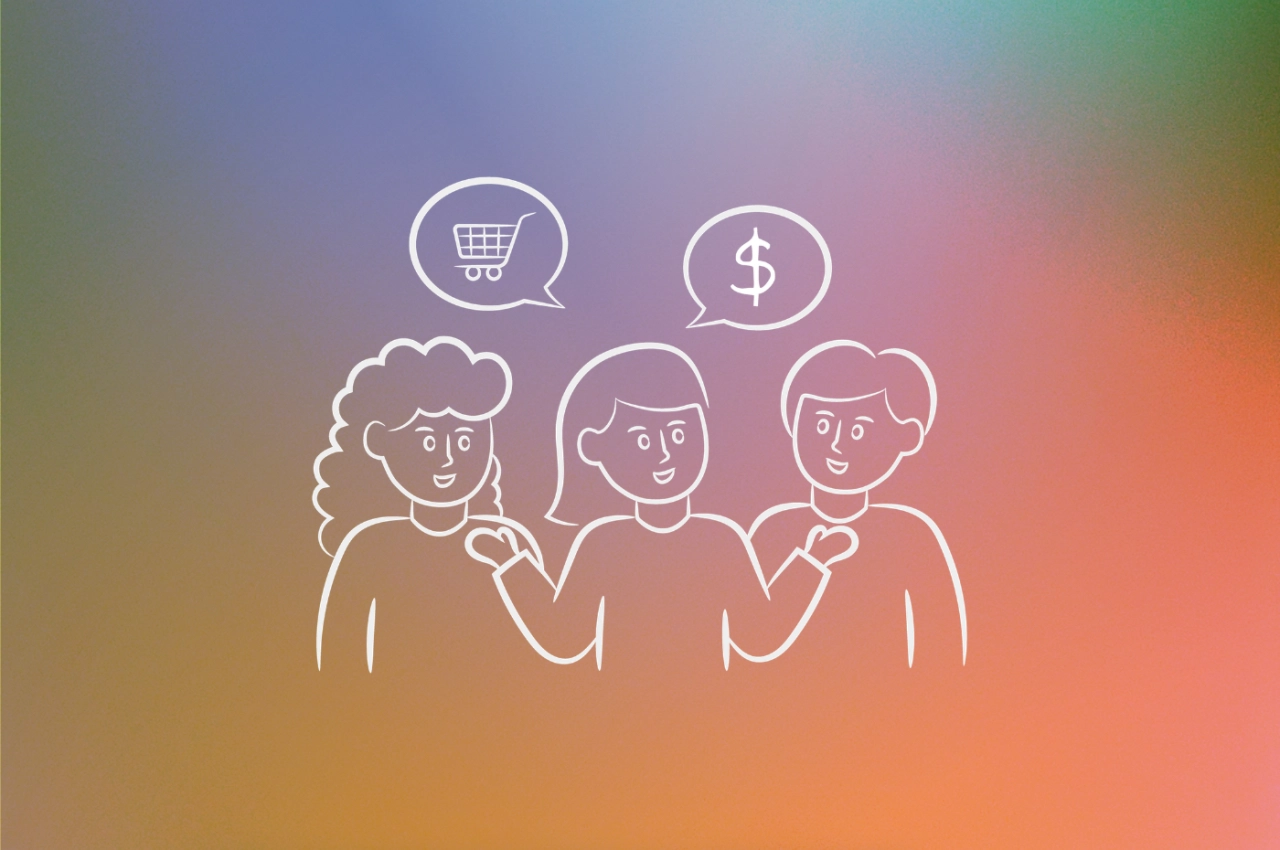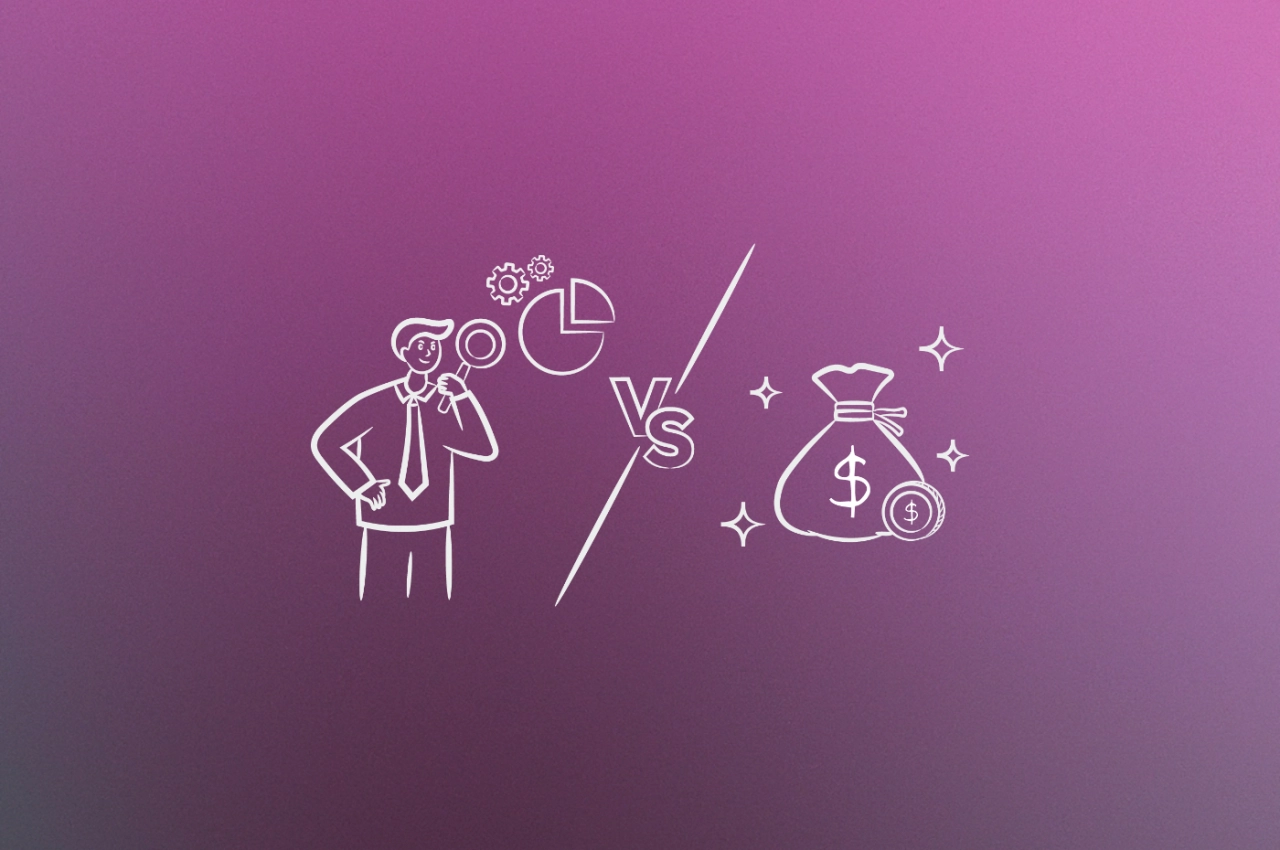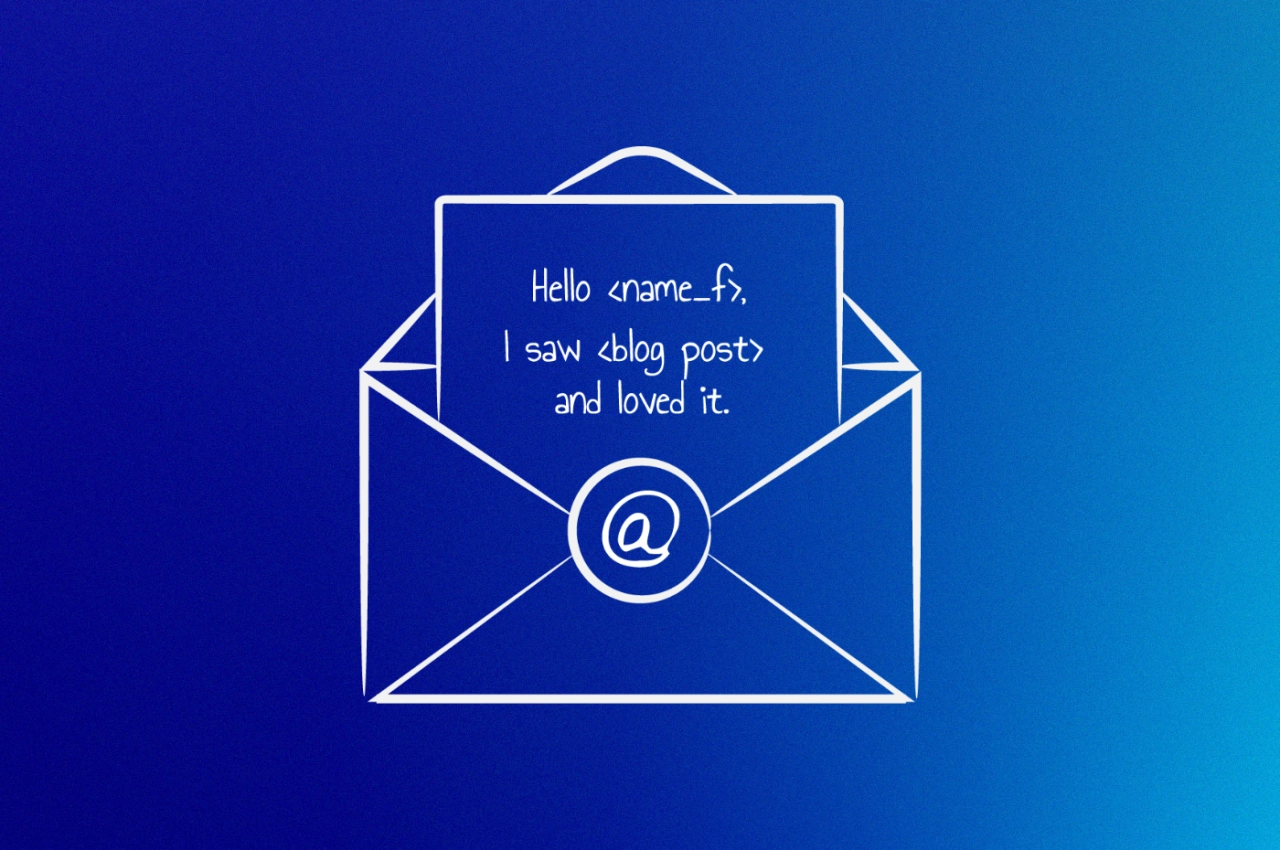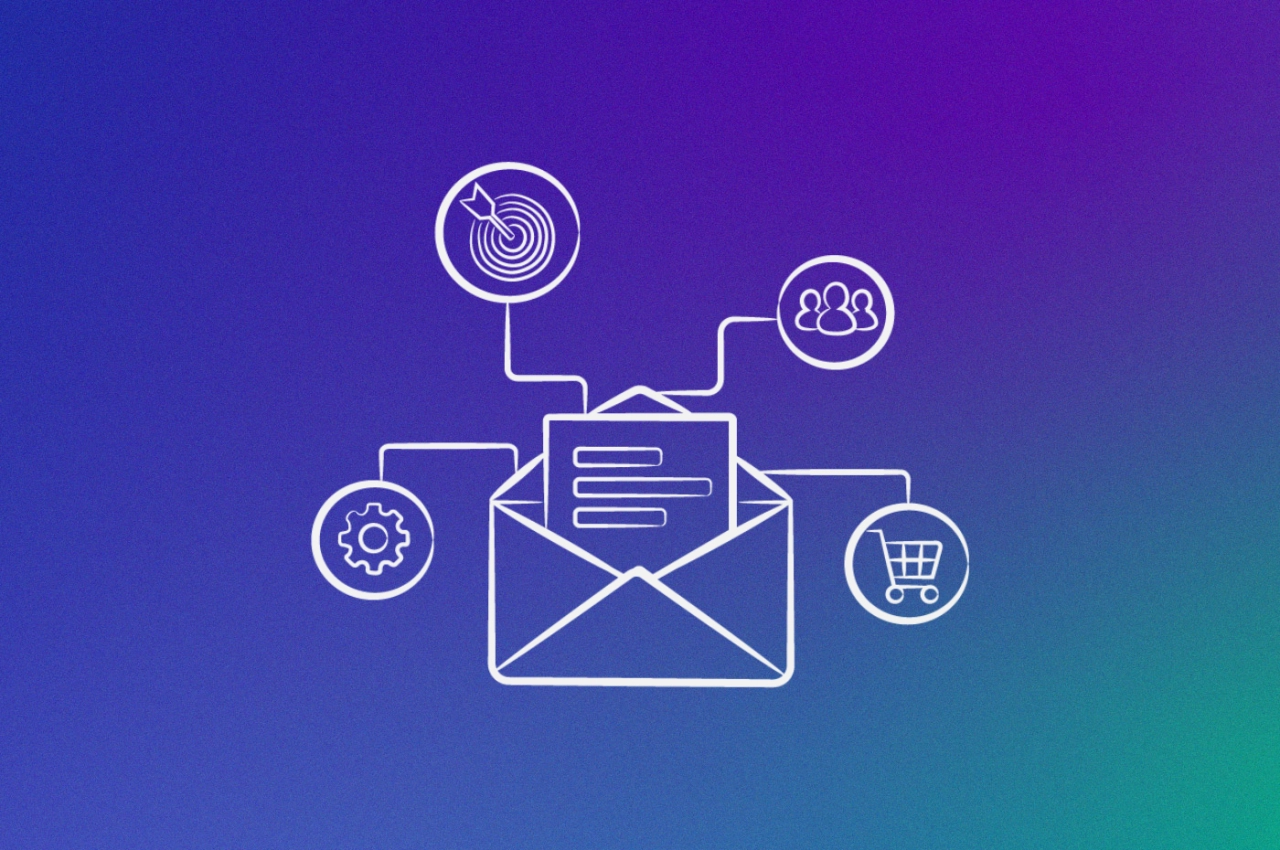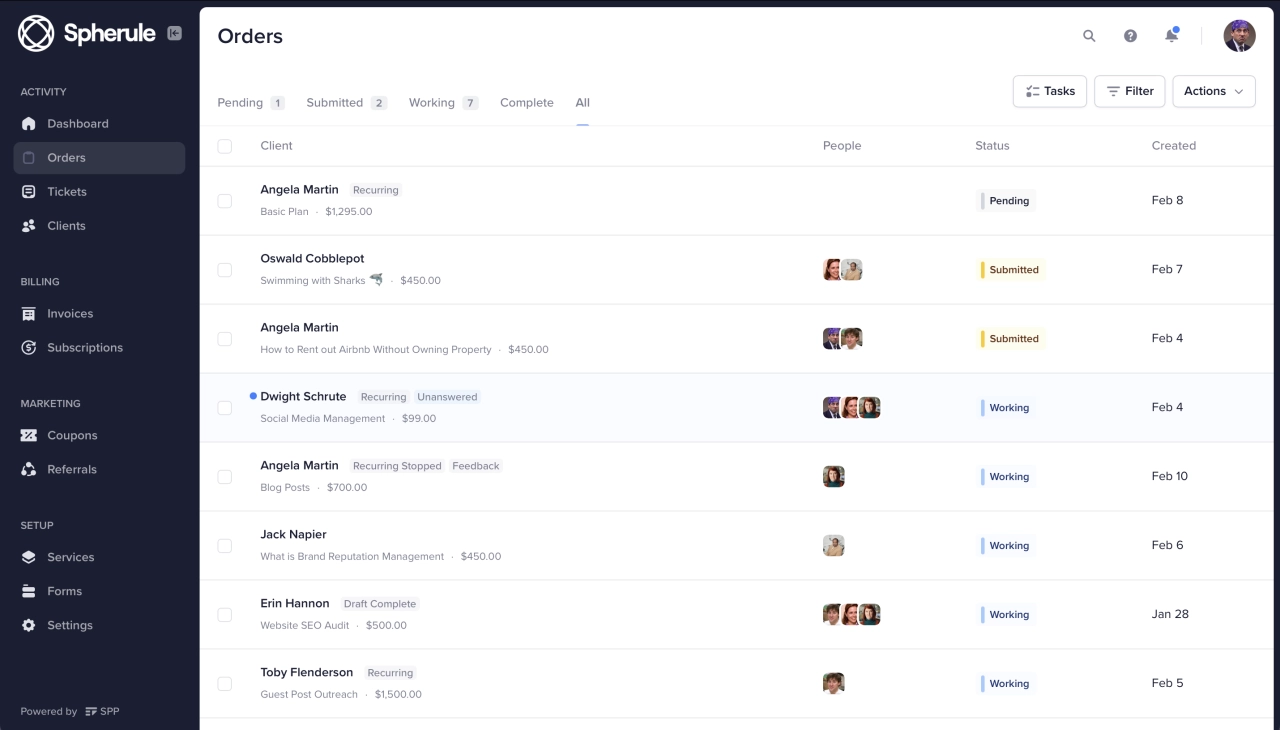- Buzz marketing generates excitement around an agency’s services through creative, unconventional, or interactive marketing techniques that encourage people to share their experiences with others.
- Benefits include enhanced brand visibility, improved client acquisition, and increased word-of-mouth referrals; it can also lead to a higher level of conversation and sharing among consumers.
- It’s crucial to measure the success of the campaign by looking at KPIs such as increased sales, media coverage, online engagement, and customer acquisition.
Have you ever felt like you’re shouting your marketing efforts into the void? Imagine your marketing efforts as a whisper in a crowded room, struggling to be heard.
You know your agency service is amazing, but getting people to talk about it can seem like an uphill battle. You can spend thousands of dollars on advertising campaigns, yet often, what makes up a consumer’s mind is simple and free: a word-of-mouth recommendation from a trusted source.
Creating buzz plays a more significant role in getting consumers to buy and improving business development for agencies.
This guide cuts through the noise and provides a roadmap to help you understand, implement, and evaluate your buzz marketing strategy, ensuring you’re not just heard but remembered.
What is buzz marketing?
Buzz marketing is a viral marketing strategy that generates fun, excitement, interest, and conversation around a product, service, or brand.
It involves creating buzz or social media chatter through creative, unconventional, or interactive marketing techniques that encourage people to share their experiences and spread the word to others.
Buzz marketing relies on creating excitement and word of mouth to drive user interest and engagement. But unlike traditional marketing, measuring the ripple effects of buzz can be complex.
4 types of buzz marketing strategies
In order to create buzz, you can use one of the four strategies listed below:
FOMO buzz marketing: FOMO (fear of missing out) is a powerful tool you can use to get people talking about a service or product. Behind these campaigns are often online or offline events that people want to participate in. You could, for instance, host a webinar with limited number of slots. In order to participate, interested parties must share a link on their social media, and get as many clicks as possible.
Rumor spreading: The launch of new products by company such as Apple are always highly anticipated. Rumors are also constantly cerculating, creating buzz. While nobody knows if the company actually spreads rumors, it would be a brilliant strategy.
Taboo buzz marketing: This strategy uses sensitive or controversial topics that create conversations on social media. An example of such a campaign is Coca-Cola’s Super Bowl Ad from 2014. They tried to promote diversity, but it backfired due to people claiming it was not patriotic. This shows how taboo themes can create fierce discussions and stear up emotions.
Humorous buzz marketing: Funny commercials always remain in our mind because—well—they are funny! To create buzz, it needs to be over-the-top and memorable, such as Snicker commercials. A great one is the You’re not you when you’re hungry campaign, which grew Snicker’s market share in its first year by 15.9%.
How does buzz marketing work?
Buzz marketing is like a digital wildfire. You spark interest with a creative idea, unconventional approach, or engaging content. When people encounter your buzz-worthy campaign, they can’t help but share it with others. If your content strikes a chord, it spreads rapidly through social networks and online communities.
While buzz marketing strategies vary depending on your goals and audience, here’s what the process typically involves:
Identify your target audience and their preferences: Firstly, create an ICP and define your customers’ journey. Remember, every buyer starts as a customer, but not all become loyal advocates. Therefore, catering to all stages of the journey creates seamless customer experiences that attract, convert, and retain buyers.
Develop a unique and compelling idea that sparks conversation: Create something worth talking about. In essence, think of ideas that can illicit conversations across your chosen distribution channels.
Choose the right channels and influencers to ignite the buzz: If you want a successful buzz marketing campaign, focus on the right channels. The right channels are places where your ideal customers reside.
Create engaging content that encourages sharing: There’s a big pool of sameness of content on the internet. If you don’t want your content in that pool, try to stand out with helpful content to generate buzz.
Monitor and engage with the buzz to keep the momentum going: Later on in this guide, I’ll be showing you how to monitor and track buzz marketing.
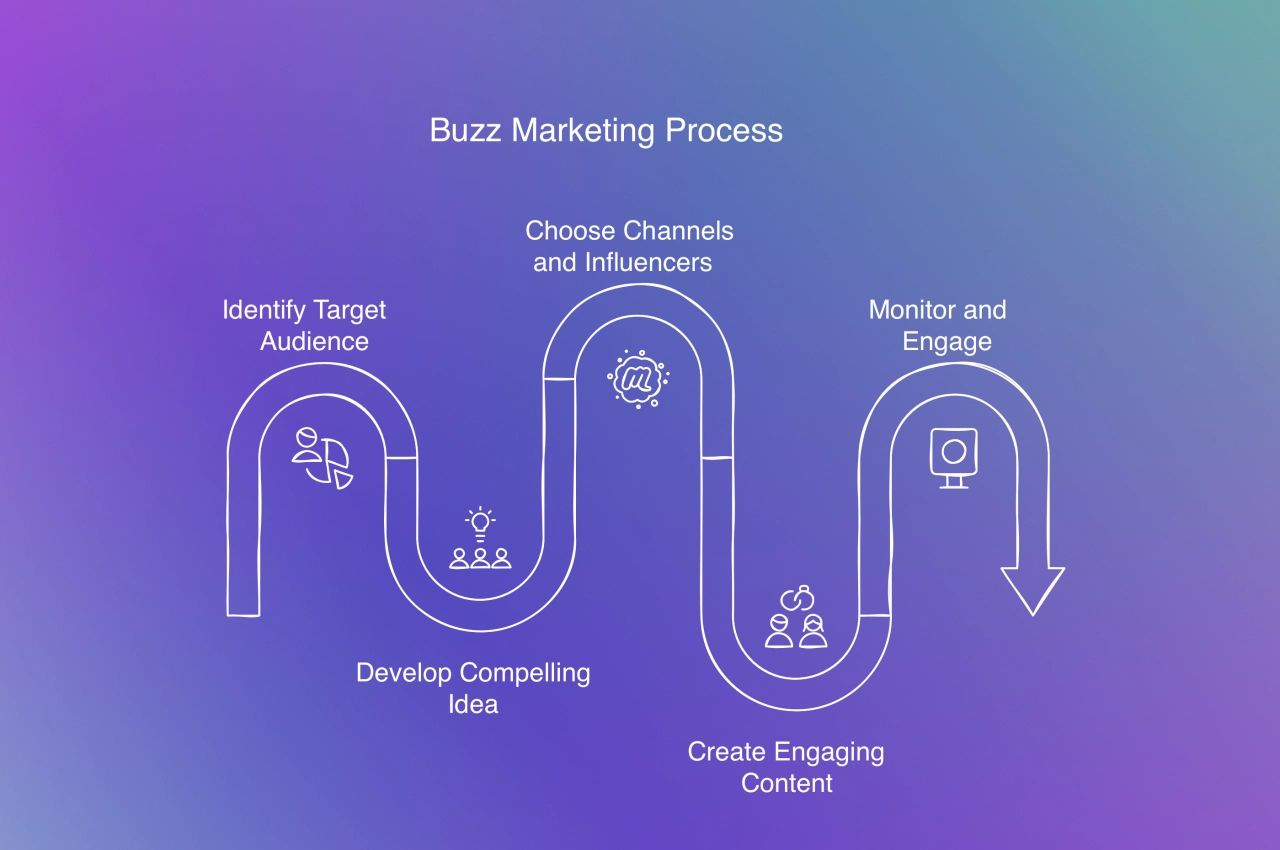
The last thing you should do is to measure the campaign’s impact on brand awareness and sentiment. Did you successfully create buzz that made an impact? If not, try to figure out what went wrong, improve your strategy, and try again.
3 benefits of buzz marketing for businesses
Buzz marketing helps business owners and their marketing teams launch a product or service into the right markets quickly by leveraging word-of-mouth and social media to create organic, viral promotion of their services. This marketing approach can increase brand visibility, improve client acquisition and ultimately reduce customer churn.
Enhanced brand visibility
The term brand awareness is thrown around so often that it’s almost lost its meaning, but it’s one of the main benefits of buzz marketing.
Take the buzz behind ChatGPT, for example. It seems as if everyone living under the sun knows that it’s all about. It has increased the visibility of OpenAI as a big technology enterprise. Similarly, buzz marketing can increase your agency’s visibility. For instance, you could build a helpful tool that other agencies or your clients could find useful.
A good example is Contentellect, who published their internal tool KeyClusters. The keyword grouping tool is very handy for all content agencies looking to streamline their content research process.
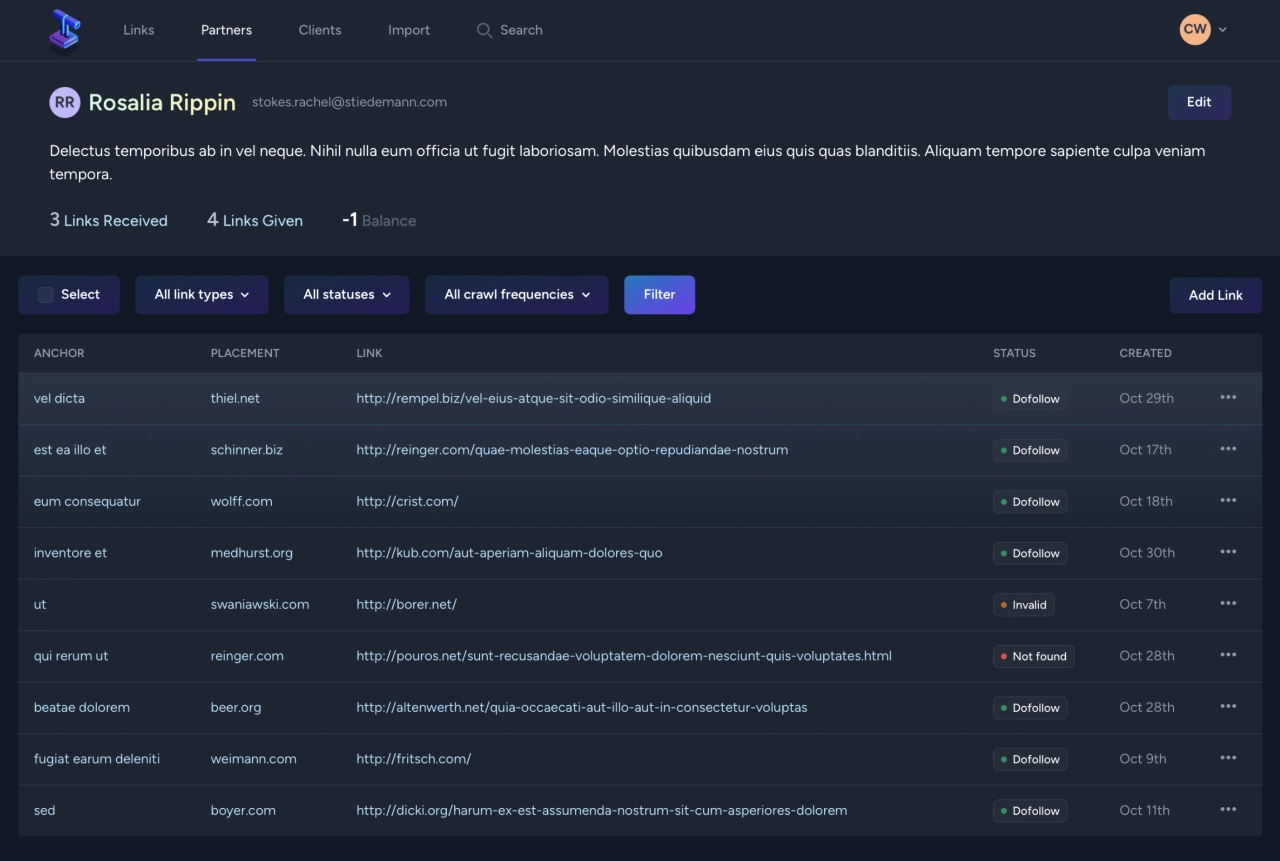
We also did something similar at Service Provider Pro. For our link building process, we couldn’t find a tool that satisfies all our needs. So we built it ourselves, polished it up, and made it available as Backlink Pilot for free.
Improved client acquisition
People buy on emotion and justify with logic. All great salespeople understand this. Most businesses don’t entertain because they’re too busy trying to hit next quarter’s target; they don’t empower their customers at all; and don’t even talk to them after a sale.
Successful buzz marketing campaigns can generate word of mouth referrals and social media shares, expanding the agency’s reach to new audiences. This organic spread of information can significantly shorten the sales cycle, as potential clients come to the agency intrigued and interested.
Increased word of mouth
The excitement generated by buzz marketing messages can lead to a higher level of conversation and word of mouth promotion among consumers. For the campaign to be successful, you’ll need to keep the buzz going. For instance, you can use ambassadors and influencers to encourage online discussions and sharing.
Buzz marketing vs viral marketing
It’s fair to say that many people have no idea that there’s a big difference between buzz marketing and viral marketing.
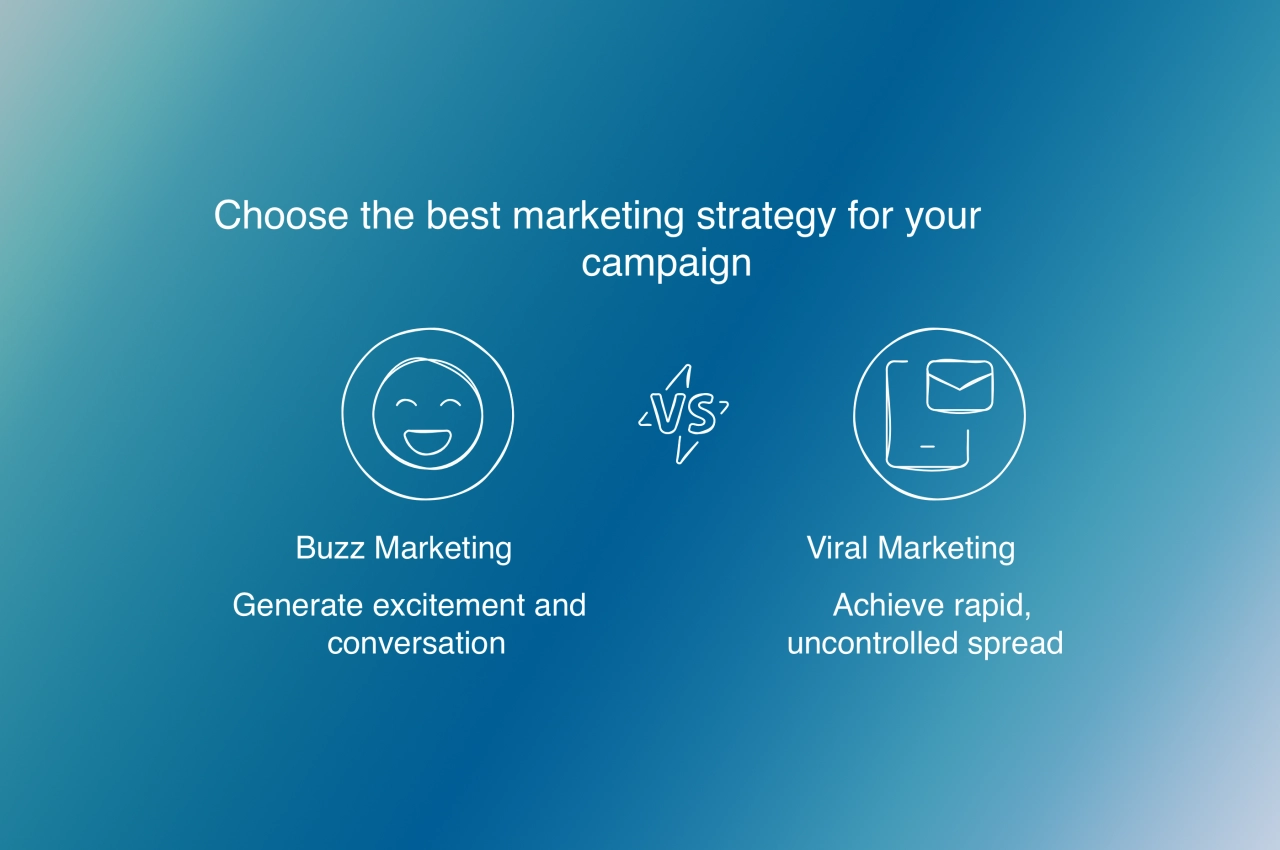
According to Justin Kirby and Paul Marsden, authors of Connected Marketing, viral marketing describes any strategy that encourages individuals to pass on a marketing message to others, creating the potential for exponential growth in the message’s exposure and influence. Like viruses, such strategies take advantage of rapid multiplication to explode the message to thousands, to millions.
The key difference between buzz and viral marketing lies in the way information spreads. With buzz marketing, you actively promote your product or service to generate excitement and conversation, whereas, with viral marketing, you create content that is so compelling that people share it on their own, causing it to spread like a virus.
Viral marketing | Buzz marketing |
Slowly picks up speed and builds up gradually with each release | Achieve rapid and widespread dissemination, create excitement and generate conversations |
Less control over how and where it spreads | More controlled and strategically executed |
Examples include viral videos, memes, social media challenges and trends | Examples include product launches, publicity stunts, influencer partnerships etc. |
3 examples of buzz marketing
Let’s take a glance at these noteworthy buzz marketing efforts from agencies.
Ogilvy: Red Papers campaign
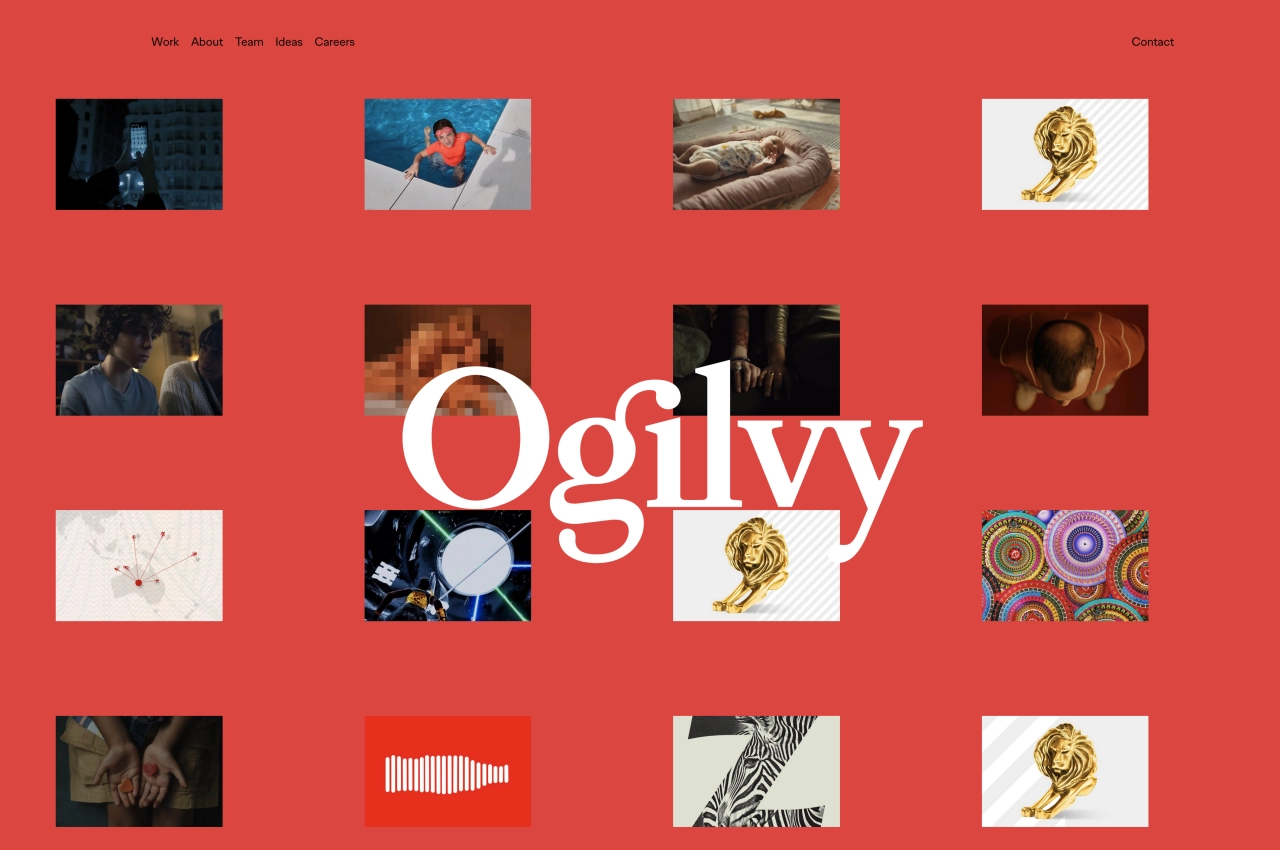
Ogilvy’s Red Papers are a series of content that explore various aspects of marketing, branding, and advertising. These papers were written by Ogilvy’s experts known for their insights, depth, and forward-thinking ideas. They branded these as Red Papers and used them to generate buzz—by establishing their authority and expertise in the industry, sparking discussions among marketing professionals.
Semrush: expert influencer buzz marketing content
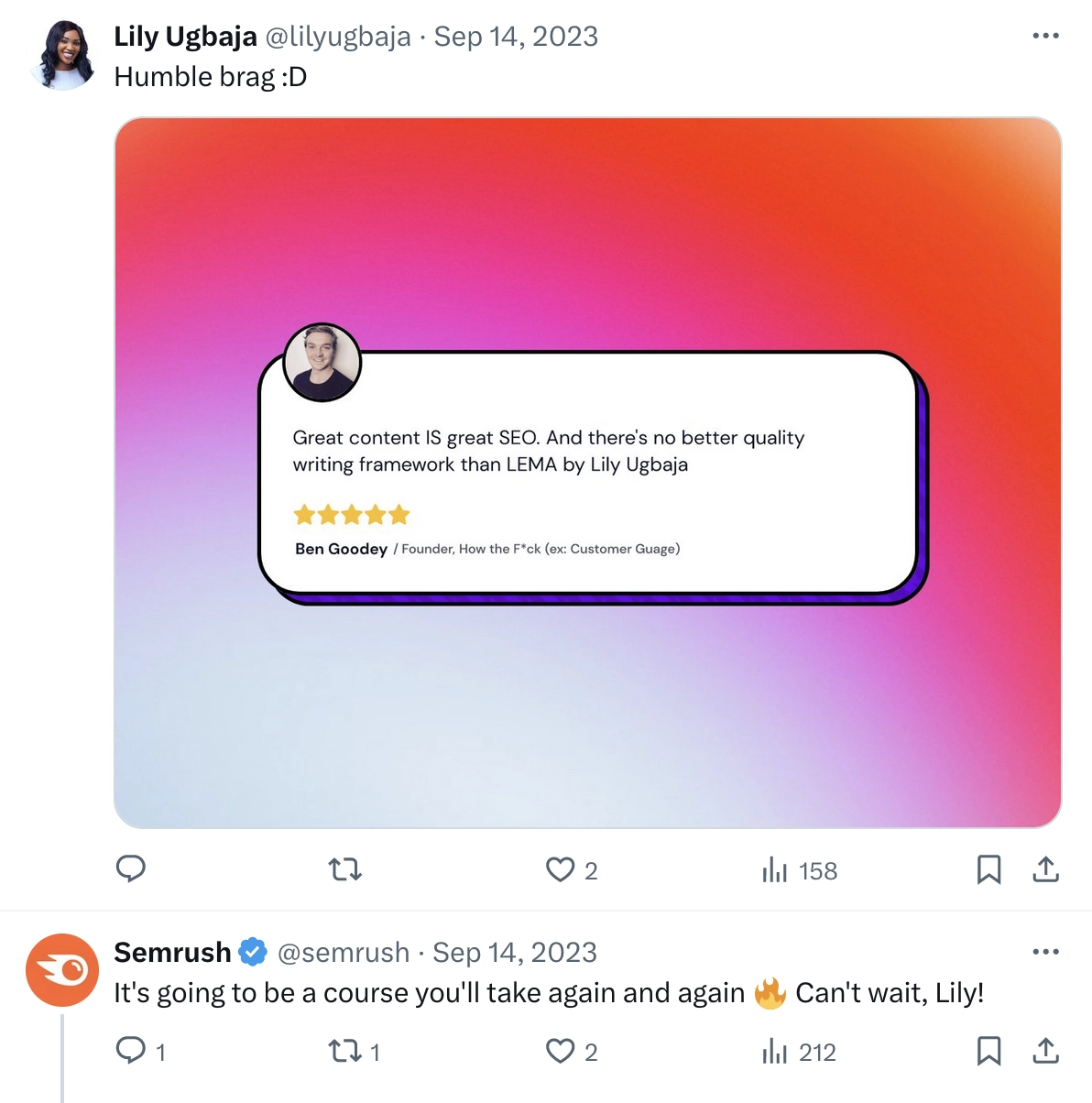
While Semrush is not an agency per se, I think it’s noteworthy to observe how they generate buzz as a SaaS platform used by thousands of agencies. A big part of Semrush’s marketing strategy is influencer marketing. Semrush collaborates with marketers like Lily Ugbaja, Erica Schneider, and Sarah Noel Block for Twitter thread takeovers. These threads, fueled by expert influence, attract significant, targeted engagements. This shows that collaborating with influencers is a way to generate marketing buzz.
Refine Labs: dark social media marketing buzz
Refine Labs is a leading B2B demand generation agency. They have refined modern-day digital marketing with innovative marketing approaches.
We would have physicians who used our products speak at conferences about how they use our product for a specific use case. It was 100% influencer marketing.
 Chris Walker,
Refine Labs
Chris Walker,
Refine Labs
USERGEMS interviewed Chris Walker to ask him how he maximizes social media to build buzz, he said: “You can basically cover the entire population of the United States across Facebook and Instagram. You can get mass consumption unlike any other platform in the world right now.”
Measuring the buzz marketing success
Creating buzz may mean nothing if actual results do not accompany it. Buzz is a means, not an end. However, some other schools of thought believe it’s an end because it’s aimed at getting people talking about your brand.
The goal of buzz marketing is to drive conversations and word of mouth so you can increase sales and awareness about your agency.
Let’s take a look at some key performance indicators you can use to track buzz marketing campaigns.
Increased sales
This is the most direct measure of the success of a buzz marketing campaign. If there’s a significant increase in sales after the launch of the campaign, it’s likely that the campaign has been successful. You should notice that your agency spends fewer resources to close leads and find customers. They should be taking fewer steps to make a purchase decision, and require less convincing about your services.
Brand awareness
Surveys can be used to measure the awareness about the brand or product before and after the buzz marketing campaign. Questions can be designed to measure how many people heard about the campaign and where they encountered it. A successful campaign should see a significant jump in brand awareness.
Social listening
Social listening is a marketing methodology that involves collecting and analyzing conversations in the marketplace. This involves monitoring social platforms for mentions around your campaign or product. Social listening can be illustrated like this: Cherry-picking mentions by your Audi audience on social media channels.

If there’s a spike in conversation around your product or brand, it’s a positive sign. However, there’s a big difference between monitoring and listening. What differs are the insights you get from listening. It tells you why people are engaging with your campaign.
Online engagement
Increased likes, comments, shares on social posts or the buzz content indicate engagement, which can be a good measure of success. The engagement rate is typically expressed as a percentage and indicates how many people have interacted with your content after seeing it in their feed. It is calculated by dividing engagement by impressions, and multiplying it by 100. For example, if a post receives 500 engagements (likes, comments, shares, etc) and were seen 10,000 times, the engagement rate would be five percent.
Customer acquisition
No customer acquisition, no business. A successful buzz marketing campaign should help bring in more customers. If there’s a noticeable increase in the number of customers post-campaign, it would indicate success.
Media coverage
If your buzz marketing campaign is truly creating a stir, it should attract media attention. This can be local or national press, industry publications, or even bloggers and influencers.

According to a survey conducted by the European Union, social media is gaining traction when it comes to media habits, gaining 11 percentage points in 2023 compared to the previous year. While you might think that social media is a medium for the younger generation, the increased was observed across all age groups.
Buzz marketing vs. conventional marketing
Buzz marketing and conventional marketing differ in how they generate interest and excitement around a product, service, or brand. Conventional marketing typically involves targeted advertising, promotional campaigns, and public relations efforts aimed at reaching a large audience with pre-planned messages.
In contrast, buzz marketing relies on grassroots, word-of-mouth promotion through social media, user-generated content, and community engagement. This approach aims to create organic, authentic interest by fostering conversations about the brand or product among influential individuals and online communities.
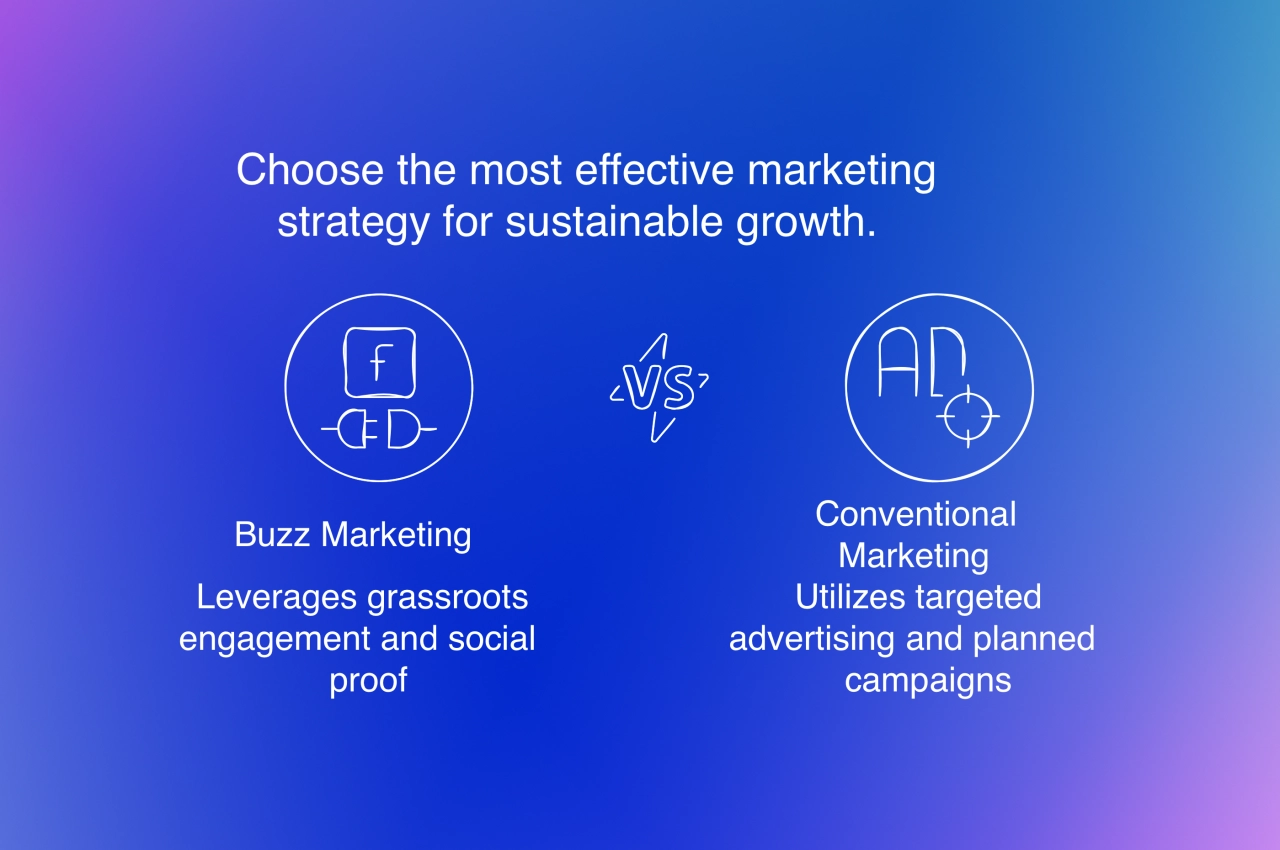
While conventional marketing can effectively reach a broad audience, it often feels forced and manufactured. Buzz marketing, however, taps into existing enthusiasm and curiosity, creating a loyal following of advocates who become unpaid marketers for the brand. By leveraging social proof and user-generated content, businesses can drive more sustainable growth and build lasting relationships with their target audience. This approach requires creativity, adaptability, and a deep understanding of the intended market.
Jobs related to buzz marketing
If you’re looking to use buzz marketing to make your agency successfull, you should know who to hire for the job.
Here are five roles that you can take into account:
Social media influencer: Collaborates with social media personalities to promote products or services.
Content creator: Develops engaging content (e.g., videos, blogs) that sparks conversations around a brand.
Community manager: Fosters online communities and encourages user-generated content for brands.
User experience designer: Creates immersive experiences that encourage sharing and word-of-mouth promotion.
Brand ambassadors: Represents the brand at events, in media, or through social channels to build enthusiasm.
These roles require creativity, strategic thinking, and a strong understanding of their target audience's behavior and preferences.
Buzz marketing FAQ
How effective is buzz marketing?
Buzz marketing is highly effective in accelerating brand awareness and fostering word of mouth promotion. The success of buzz marketing relies on its ability to captivate audiences and encourage organic sharing, making it a powerful tool for businesses aiming to stand out in a competitive market.
What are some ethical problems in buzz marketing?
While buzz marketing has proven to be an effective way to increase sales and drive business development for agencies, it also raises some ethical concerns: Some buzz marketing campaigns may involve deceptive practices, such as paying influencers or consumers to promote products or services with bad reviews.
Why does buzz marketing work?
Buzz marketing uses trust, social proof, emotional connection, and authenticity to spread messages through social networks, cost-effectively driving engagement and interest.
What are the best ways to use digital marketing to generate buzz?
The best ways to use digital marketing to generate buzz include creating shareable tools (like free software), collaborating with industry influencers for content takeovers, publishing thought leadership content, using FOMO strategies with limited-time offers, and leveraging social media for conversations. Focus on creating content worth talking about rather than just promoting directly.
What sparked online buzz?
Successful online buzz often sparks from unexpected utility (like ChatGPT), free valuable tools (like Backlink Pilot), controversial but thoughtful takes on industry topics, influencer collaborations, and creative campaigns that tap into emotions. Examples include Ogilvy's Red Papers, Semrush's expert Twitter takeovers, and agencies releasing their internal tools publicly.
Get everyone talking about your agency
No one will bother talking about your agency if there’s nothing worth talking about. It can be your content, your customer service, client management or marketing campaigns. So, the goal is to make your agency worth talking about.
On the internet, whispers become roars. Little shout-outs become buzz. And there’s only one way to trigger all these, as Dan Harmon said: “Find your voice, loud it from the rooftops until people who are looking for you find you.”





